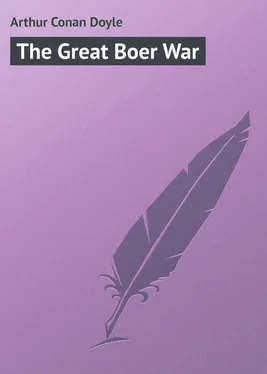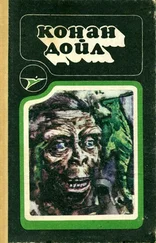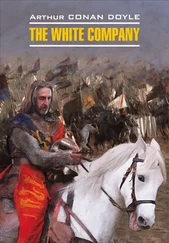Артур Конан Дойл - The Great Boer War
Здесь есть возможность читать онлайн «Артур Конан Дойл - The Great Boer War» — ознакомительный отрывок электронной книги совершенно бесплатно, а после прочтения отрывка купить полную версию. В некоторых случаях можно слушать аудио, скачать через торрент в формате fb2 и присутствует краткое содержание. Жанр: Биографии и Мемуары, foreign_publicism, на русском языке. Описание произведения, (предисловие) а так же отзывы посетителей доступны на портале библиотеки ЛибКат.
- Название:The Great Boer War
- Автор:
- Жанр:
- Год:неизвестен
- ISBN:нет данных
- Рейтинг книги:4 / 5. Голосов: 1
-
Избранное:Добавить в избранное
- Отзывы:
-
Ваша оценка:
- 80
- 1
- 2
- 3
- 4
- 5
The Great Boer War: краткое содержание, описание и аннотация
Предлагаем к чтению аннотацию, описание, краткое содержание или предисловие (зависит от того, что написал сам автор книги «The Great Boer War»). Если вы не нашли необходимую информацию о книге — напишите в комментариях, мы постараемся отыскать её.
The Great Boer War — читать онлайн ознакомительный отрывок
Ниже представлен текст книги, разбитый по страницам. Система сохранения места последней прочитанной страницы, позволяет с удобством читать онлайн бесплатно книгу «The Great Boer War», без необходимости каждый раз заново искать на чём Вы остановились. Поставьте закладку, и сможете в любой момент перейти на страницу, на которой закончили чтение.
Интервал:
Закладка:
At the time of the Convention of Pretoria (1881) the rights of burghership might be obtained by one year's residence. In 1882 it was raised to five years, the reasonable limit which obtains both in Great Britain and in the United States. Had it remained so, it is safe to say that there would never have been either an Uitlander question or a great Boer war. Grievances would have been righted from the inside without external interference.
In 1890 the inrush of outsiders alarmed the Boers, and the franchise was raised so as to be only attainable by those who had lived fourteen years in the country. The Uitlanders, who were increasing rapidly in numbers and were suffering from the formidable list of grievances already enumerated, perceived that their wrongs were so numerous that it was hopeless to have them set right seriatim, and that only by obtaining the leverage of the franchise could they hope to move the heavy burden which weighed them down. In 1893 a petition of 13,000 Uitlanders, couched in most respectful terms, was submitted to the Raad, but met with contemptuous neglect. Undeterred, however, by this failure, the National Reform Union, an association which organised the agitation, came back to the attack in 1894. They drew up a petition which was signed by 35,000 adult male Uitlanders, a greater number than the total Boer male population of the country. A small liberal body in the Raad supported this memorial and endeavoured in vain to obtain some justice for the newcomers. Mr. Jeppe was the mouthpiece of this select band. 'They own half the soil, they pay at least three quarters of the taxes,' said he. 'They are men who in capital, energy, and education are at least our equals.
What will become of us or our children on that day when we may find ourselves in a minority of one in twenty without a single friend among the other nineteen, among those who will then tell us that they wished to be brothers, but that we by our own act have made them strangers to the republic?' Such reasonable and liberal sentiments were combated by members who asserted that the signatures could not belong to law-abiding citizens, since they were actually agitating against the law of the franchise, and others whose intolerance was expressed by the defiance of the member already quoted, who challenged the Uitlanders to come out and fight. The champions of exclusiveness and racial hatred won the day. The memorial was rejected by sixteen votes to eight, and the franchise law was, on the initiative of the President, actually made more stringent than ever, being framed in such a way that during the fourteen years of probation the applicant should give up his previous nationality, so that for that period he would really belong to no country at all. No hopes were held out that any possible attitude upon the part of the Uitlanders would soften the determination of the President and his burghers. One who remonstrated was led outside the State buildings by the President, who pointed up at the national flag. 'You see that flag?' said he. 'If I grant the franchise, I may as well pull it down.' His animosity against the immigrants was bitter. 'Burghers, friends, thieves, murderers, newcomers, and others,' is the conciliatory opening of one of his public addresses. Though Johannesburg is only thirty-two miles from Pretoria, and though the State of which he was the head depended for its revenue upon the gold fields, he paid it only three visits in nine years.
This settled animosity was deplorable, but not unnatural. A man imbued with the idea of a chosen people, and unread in any book save the one which cultivates this very idea, could not be expected to have learned the historical lessons of the advantages which a State reaps from a liberal policy. To him it was as if the Ammonites and Moabites had demanded admission into the twelve tribes. He mistook an agitation against the exclusive policy of the State for one against the existence of the State itself. A wide franchise would have made his republic firm-based and permanent. It was a small minority of the Uitlanders who had any desire to come into the British system. They were a cosmopolitan crowd, only united by the bond of a common injustice. But when every other method had failed, and their petition for the rights of freemen had been flung back at them, it was natural that their eyes should turn to that flag which waved to the north, the west, and the south of them – the flag which means purity of government with equal rights and equal duties for all men. Constitutional agitation was laid aside, arms were smuggled in, and everything prepared for an organised rising.
The events which followed at the beginning of 1896 have been so thrashed out that there is, perhaps, nothing left to tell – except the truth. So far as the Uitlanders themselves are concerned, their action was most natural and justifiable, and they have no reason to exculpate themselves for rising against such oppression as no men of our race have ever been submitted to. Had they trusted only to themselves and the justice of their cause, their moral and even their material position would have been infinitely stronger. But unfortunately there were forces behind them which were more questionable, the nature and extent of which have never yet, in spite of two commissions of investigation, been properly revealed. That there should have been any attempt at misleading inquiry, or suppressing documents in order to shelter individuals, is deplorable, for the impression left – I believe an entirely false one – must be that the British Government connived at an expedition which was as immoral as it was disastrous.
It had been arranged that the town was to rise upon a certain night, that Pretoria should be attacked, the fort seized, and the rifles and ammunition used to arm the Uitlanders. It was a feasible device, though it must seem to us, who have had such an experience of the military virtues of the burghers, a very desperate one. But it is conceivable that the rebels might have held Johannesburg until the universal sympathy which their cause excited throughout South Africa would have caused Great Britain to intervene. Unfortunately they had complicated matters by asking for outside help. Mr. Cecil Rhodes was Premier of the Cape, a man of immense energy, and one who had rendered great services to the empire. The motives of his action are obscure – certainly, we may say that they were not sordid, for he has always been a man whose thoughts were large and whose habits were simple. But whatever they may have been – whether an ill-regulated desire to consolidate South Africa under British rule, or a burning sympathy with the Uitlanders in their fight against injustice – it is certain that he allowed his lieutenant, Dr. Jameson, to assemble the mounted police of the Chartered Company, of which Rhodes was founder and director, for the purpose of co-operating with the rebels at Johannesburg. Moreover, when the revolt at Johannesburg was postponed, on account of a disagreement as to which flag they were to rise under, it appears that Jameson (with or without the orders of Rhodes) forced the hand of the conspirators by invading the country with a force absurdly inadequate to the work which he had taken in hand. Five hundred policemen and three field guns made up the forlorn hope who started from near Mafeking and crossed the Transvaal border upon December 29th, 1895. On January 2nd they were surrounded by the Boers amid the broken country near Dornkop, and after losing many of their number killed and wounded, without food and with spent horses, they were compelled to lay down their arms. Six burghers lost their lives in the skirmish.
The Uitlanders have been severely criticised for not having sent out a force to help Jameson in his difficulties, but it is impossible to see how they could have acted in any other manner. They had done all they could to prevent Jameson coming to their relief, and now it was rather unreasonable to suppose that they should relieve their reliever. Indeed, they had an entirely exaggerated idea of the strength of the force which he was bringing, and received the news of his capture with incredulity. When it became confirmed they rose, but in a halfhearted fashion which was not due to want of courage, but to the difficulties of their position. On the one hand, the British Government disowned Jameson entirely, and did all it could to discourage the rising; on the other, the President had the raiders in his keeping at Pretoria, and let it be understood that their fate depended upon the behaviour of the Uitlanders. They were led to believe that Jameson would be shot unless they laid down their arms, though, as a matter of fact, Jameson and his people had surrendered upon a promise of quarter. So skillfully did Kruger use his hostages that he succeeded, with the help of the British Commissioner, in getting the thousands of excited Johannesburgers to lay down their arms without bloodshed. Completely out-manoeuvred by the astute old President, the leaders of the reform movement used all their influence in the direction of peace, thinking that a general amnesty would follow; but the moment that they and their people were helpless the detectives and armed burghers occupied the town, and sixty of their number were hurried to Pretoria Gaol.
Читать дальшеИнтервал:
Закладка:
Похожие книги на «The Great Boer War»
Представляем Вашему вниманию похожие книги на «The Great Boer War» списком для выбора. Мы отобрали схожую по названию и смыслу литературу в надежде предоставить читателям больше вариантов отыскать новые, интересные, ещё непрочитанные произведения.
Обсуждение, отзывы о книге «The Great Boer War» и просто собственные мнения читателей. Оставьте ваши комментарии, напишите, что Вы думаете о произведении, его смысле или главных героях. Укажите что конкретно понравилось, а что нет, и почему Вы так считаете.









